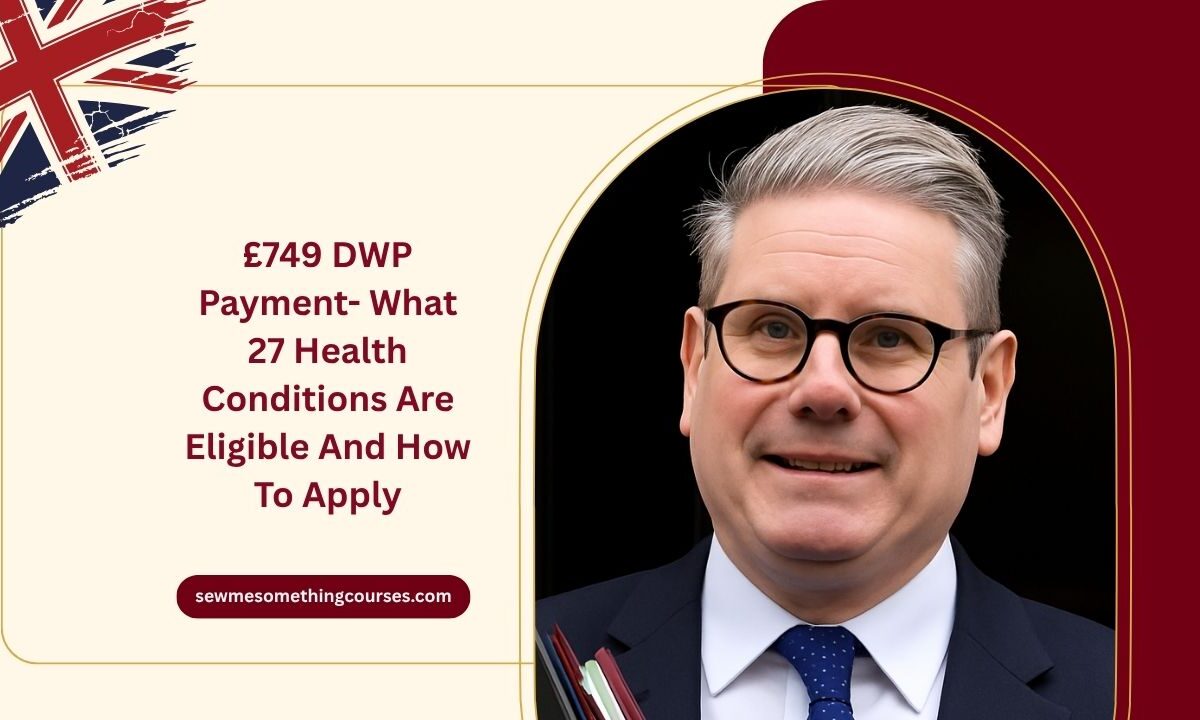People with long-term health conditions or disabilities in the UK now have the opportunity to receive a one-time payment of £749 from the Department for Work and Pensions (DWP).
This payment is aimed at easing the financial strain for individuals with specific health conditions that impact their daily lives.
However, eligibility is not automatic and is dependent on certain criteria, including eligibility for the Personal Independence Payment (PIP) scheme.
The Purpose of the £749 Payment
The £749 payment is not a routine benefit; it is a special, one-time financial support measure for individuals facing severe challenges due to their health conditions.
To qualify for this payment, individuals must already be receiving PIP, a benefit that helps people who need assistance with daily activities due to physical or mental health issues.
Eligible Health Conditions: A Breakdown
The DWP has identified 27 specific health conditions that may qualify for the £749 payment. These conditions include respiratory diseases like COPD and asthma, neurological disorders such as epilepsy, and occupational diseases like asbestosis.
Chronic infections and organ-related health problems, including those requiring transplants, are also eligible. However, it’s not just the diagnosis that matters; the impact on daily living is the key determinant.
Conditions Listed by the DWP for the £749 Payment
Here is a list of some conditions eligible for the £749 payment:
| Health Condition | Description |
|---|---|
| Chronic Obstructive Pulmonary Disease (COPD) | A severe lung condition that makes it hard to breathe. |
| Asthma | A chronic condition affecting the airways in the lungs. |
| Epilepsy | A neurological disorder causing seizures. |
| Asbestosis | Lung disease caused by exposure to asbestos fibers. |
| Silicosis | Lung disease from inhaling fine silica dust. |
| Organ transplant patients | Individuals who have undergone life-saving organ transplants. |
| Chronic infections | Ongoing infections that significantly impact mobility and daily tasks. |
Eligibility Criteria: What Matters Most?
To qualify for the £749 payment, applicants need to show that their health condition significantly impairs their ability to manage daily living tasks and their mobility. This includes:
- Daily living: Problems with tasks such as dressing, cooking, managing personal care, and medication.
- Mobility: Difficulty walking, climbing stairs, or needing assistance with movement.
These criteria are assessed through a structured PIP evaluation, where healthcare professionals assess how a person’s condition impacts their daily activities.
The payment is typically awarded to those who show substantial need for assistance in both daily living and mobility.
PIP Rates and Additional Support
The PIP benefit consists of two parts: daily living and mobility. These are available at either a standard or enhanced rate, depending on the level of need. The current standard rates for PIP are:
- Daily Living: £61.85 per week (standard) or £110.40 per week (enhanced)
- Mobility: £24.45 per week (standard) or £64.50 per week (enhanced)
For individuals who qualify for the enhanced support in both components of PIP, the £749 payment provides additional financial relief to help with ongoing care, mobility aids, or other costs related to their condition.
Navigating the Application Process
To apply for the £749 payment, individuals must first ensure they meet the health condition and eligibility criteria. Applicants need to gather medical evidence, such as letters from healthcare providers, test results, and medical histories.
Once the necessary documentation is ready, the application can be made online or by post. After submission, applicants will be scheduled for an assessment, either face-to-face or over the phone, based on their needs. If successful, applicants will receive a confirmation letter and the payment will be processed.
Timely Payments and Holidays
In some cases, the DWP has adjusted payment schedules to ensure recipients receive their support on time.
For example, during the May Bank Holiday, payments were made on May 23 instead of the usual May 26, ensuring no delays in receiving critical support.
Real-Life Examples of Impact
Many recipients, like John, who suffers from COPD, have used the £749 payment to purchase mobility aids and receive part-time care.
This payment plays a crucial role in alleviating the financial pressure of everyday activities and improving the quality of life for those affected by severe health conditions.
Exploring Additional Support
In addition to the £749 payment, individuals may qualify for other forms of support such as Disability Living Allowance (DLA) for children, Employment Support Allowance (ESA) for those unable to work, and Universal Credit for further assistance.
The £749 DWP payment offers vital financial relief to those suffering from severe health conditions. By addressing daily living and mobility challenges, this initiative plays a key role in supporting those with long-term disabilities.
FAQs
Who is eligible for the £749 DWP payment?
People with specific health conditions, including respiratory diseases, neurological disorders, and organ transplant recipients, may be eligible if they receive PIP.
How is eligibility for the payment determined?
Eligibility is based on how much a person’s condition affects their daily living and mobility. Healthcare professionals conduct assessments to determine need.
How can I apply for the £749 payment?
Applicants must gather medical documentation and apply online or by post. An assessment will be scheduled to evaluate eligibility.

